Debating 101: A few debate tips from your fellow delegates
Photo Credit Muyao Wong
Debating 101: A few debate tips from your fellow delegates
As delegates prepare themselves for the days to come, whether this be their first or hundredth conference, we, the press team, have provided a few MUN tips which you may find useful. These are provided by the courtesy of your fellow delegates.
1. Do your research
As Sir Francis Bacon stated, “knowledge itself is power.” Although Sir Bacon did not partake in Model United Nations, we believe that this advice will be useful to the delegates and chairs at LIMUN. You will feel much more confident in your committee after preparing research about your country, their stance, policies and committee topic. Having these notes in your laptop/a folder will make it easy to access these in debate.
2. Learn about the committee stages/structure
If this is your first MUN conference, MUN committee may seem like chaos - placards flying everywhere, points of information being thrown around, voting suddenly occurring. Not to worry, because a small bit of research can go a long way. A quick MUN lecture about the 5 different stages of the committee:
The research stage: this is all the hard work that you’ve been doing prior to the conference
Opening speeches: this is the first speech that delegates give at the start of a committee
Caucuses: this occurs after the opening speeches, where delegates aim to find allies and form blocs
Resolution writing: delegates will write their resolutions in their blocs
Debate: this will happen once resolutions have been submitted to the chairs. Speeches will be made for and against this resolution, then any amendments will be debated.
https://bestdelegate.com/5-stages-of-committee-every-delegate-should-know/
3. Maintain diplomacy
Although debates may get very heated, which is also an exciting part of MUN, maintaining diplomacy is a key part of making sure a debate runs as smoothly as possible.
Many delegates have reported this as their go-to debating strategy. More competitive delegates believe that it is important to manoeuvre your way to create a frontier of allies on the first day to make sure your resolution passed.
Remember to be considerate towards your fellow delegates and refrain from rolling your eyes, shouting out points, or saying mean comments. You should try to maintain a professional manner, as this is how presidents, ambassadors, leaders, diplomats, and other individuals conduct themselves in real-life UN debates.
4. Try to stay calm
Delegates unanimously agreed that it is extremely important to not lose your cool during/ before or after a debate. It is important that you manage all speeches confidently, as you know more than what you think you do. Delegates argued that it is extremely important to remain mindful of the situation as well and be careful with what you say, as sometimes you can say things you don’t mean when you are under pressure/annoyed.
5. Adapt and Overcome
Delegates, and especially MUN veterans, have stated that all MUN competitions are different. All chairs, committees debates, topics, and style of debate are all different. You get the idea. Most delegates we interviewed believe it is important to be an adaptive personality, whether it be in the way of coping with the environment of the committee, or during a discussion with delegates.
6. Treat them as a puzzle, not a block
Delegates like Samira Merenz, HSC, believe that it is extremely important to treat your fellow delegates as a puzzle; to compromise with and come to solutions together, instead of treating them as a block and always being on defence or attack.
7. Disruption and diplomacy
A few delegates believe that controlled chaos is necessary to win a debate, most debaters argued that it is vital for a debate to have substantial chaos/ disruption to keep the debate in motion, it is important that you are not a pushover when trying to win the best delegate.
7. Be emotive
Delegates believe that it is extremely powerful and empowering when a delegate can portray their country, their hardships and more with a certain patriotic emotional ness. Debaters believe that this moves audiences and chairs to sympathise with your points and pushes the necessities of your points made for you and your country.
All in all, we hope these tips from your fellow delegates will help any first-time MUN-ers, but most importantly, be sure to enjoy the debate and have a good time!
The main tip we can offer you is to get involved and try to speak! Although it may be nerve-wracking at first, trying your best to ask questions or put forward resolutions/amendments will give you the best first-hand experience in this conference.
If you are ever unsure about anything in debate, make sure to raise a Point of Inquiry to ask any questions. Although asking questions/speaking may be scary, this is the first step to becoming a better delegate. We look forward to seeing your debates in motion over this weekend!
By Fasih Rehman and Dominico Riviera
Thank you for the lovely advice: Jessica HSC, Cora UN WOMEN, Samira HSC, Navin UNSC, Priyadarshan NATO, Amy HSC, Yousef UNSC, Areesha INTERPOL, Mathew ECOSOC, Louis UNDDR, Alena ECOSOC, Tom UDHR, Areti WHO, Marta COUPOUS, Isabella IMF, Colin IMF

